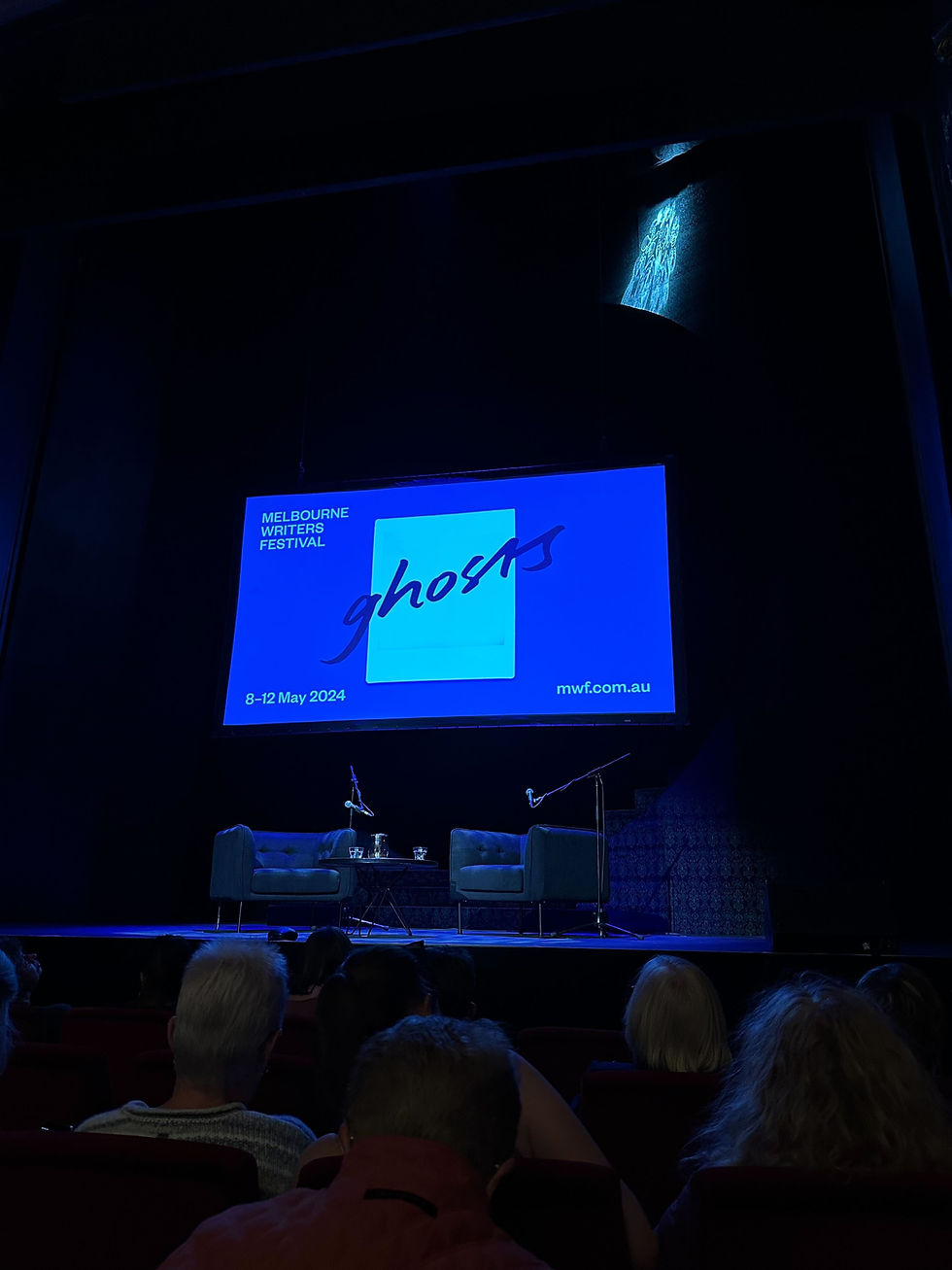Rosie Batty’s domestic violence message at the Melbourne Writers Festival
- Nicole Manolitsas
- May 27, 2024
- 4 min read
Earlier this month, the Melbourne Writers Festival held an exceptional week of celebrating authors and uniting the readers of Melbourne.

Since 1986, this annual event has inspired crowds at some of the city’s finest venues, from the Athenaeum Theatre to RMIT’s very own ‘The Capitol.’
The 2024 theme for this year's festival was ‘ghosts’, which invited attendees to not only think about the ghosts that may haunt the past, but also what plagues them now.
Ghosts can range from past selves to past mistakes, maybe even the shadow that has returned as a reminder of what you never healed from.
One of the headlining speakers at this year’s festival, Rosie Batty, was able to perfectly sum up the theme of ‘ghosts’ in one sentence:
“When living in the trauma of your past, you’re not moving forward and embracing the possibility of what life has yet to bring you.”
Rosie Batty is a successful author and family violence campaigner.
The Melbourne Writers Festival proved to be an important platform for women, like Rosie Batty, to talk about issues such as domestic violence.
In 2024, there has been an increase in cases of domestic and gender-based violence, prompting large-scale protests across the country.
According to the ABC, “by April 23, 2024, 25 women have died of gender-based violence, 11 more than last year.” This figure has risen since.
At the Writers Festival, Ms Batty talked about her journey of grief after losing her son, Luke Batty, who was killed by his father. Since his death in 2014, Rosie Batty has advocated for more to be done to address domestic violence, which has unfortunately become a national crisis.
Australian Journalist and author, Laura Tingle, asked Ms Batty questions during the May 12 event.
Batty was asked about her memoir published this year entitled, Hope.
The book explores the private journey that Rosie Batty endured after losing Luke, and the process of searching for peace in a difficult time.
The publication was an opportunity to share her story and have her voice “be heard”, Ms Batty told Laura Tingle. Due to the recent surge in domestic violence cases around the country, Batty noted that the timing of the release “is really pertinent.”
The sorrow and pain that Ms Batty experienced after losing her only child made her a beacon of hope for those who are also affected by family violence.
“I channelled my grief into something that I deeply believed in,” said Batty.
“I really felt it was helping a lot of people.”
By stepping into the role of advocating for the safety of women and children, she found a sense of meaning and purpose in life once again.
“I am more of the person that I used to be than I thought I possibly could return to,” Ms Batty spoke, warming hearts in the audience.
After Luke’s horrifying death, Batty launched into the role of a domestic violence prevention advocate with “no preparation, no training.” She had no team to help write her speeches, instead, she bravely campaigned for family violence “by intuition, by honesty.”
Rosie Batty’s work earned her Australian of the Year in 2015.
Although she has assisted many domestic violence victims around Australia, Rosie Batty stated that “what’s exhausting now and perhaps a bit despairing”, is that she’s still repeating the “same things 10 years later.”
Rosie Batty noted that for 10 years, she’s been saying the same statements over and over: “1 woman a week is murdered”, “1 in 3 women is affected by physical violence” and “1 in 4 children.”
“A lot of the same conversations” still need to be had, making the crisis “feel like a broken record.”
Data from the Personal Safety Survey reports that “1 in 5 adults in 2021-22 had experienced family and domestic violence since the age of 15.”
Rosie Batty spoke with remorse about domestic violence, as the issue “remains one of our worst social problems”, and whilst she believes that there has been some improvement, “change takes so long.”
She continued, stating that the “structural and cultural changes that have to occur are very difficult.”
In union with Rosie Batty’s important work, she expressed that “where change will occur is with our young people” and “critical work needs to be done” with the younger generations.
Anyone can exert power and influence, which is greatly needed amid this national crisis.
Batty confidently used the Writers Festival to share her story and help those suffering from violence. Like her, students can equally do their part by respecting each other and offering help to those in need.
Rosie Batty retold a quote from former Prime Minister, Malcolm Turnbull:
“Disrespecting women doesn’t always end in violence. But all violence begins with disrespect.”
All people, everywhere, can do better. A big part of ending all forms of domestic violence and abuse is up to our generation.
If you or anyone you know needs help, the following contacts are available:
1800RESPECT (1800 737 732)
Safe Steps Family Violence Response Centre (1800 015 188)
Men’s Referral Service (1300 766 491)
Relationships Australia (1300 364 277)








Comments